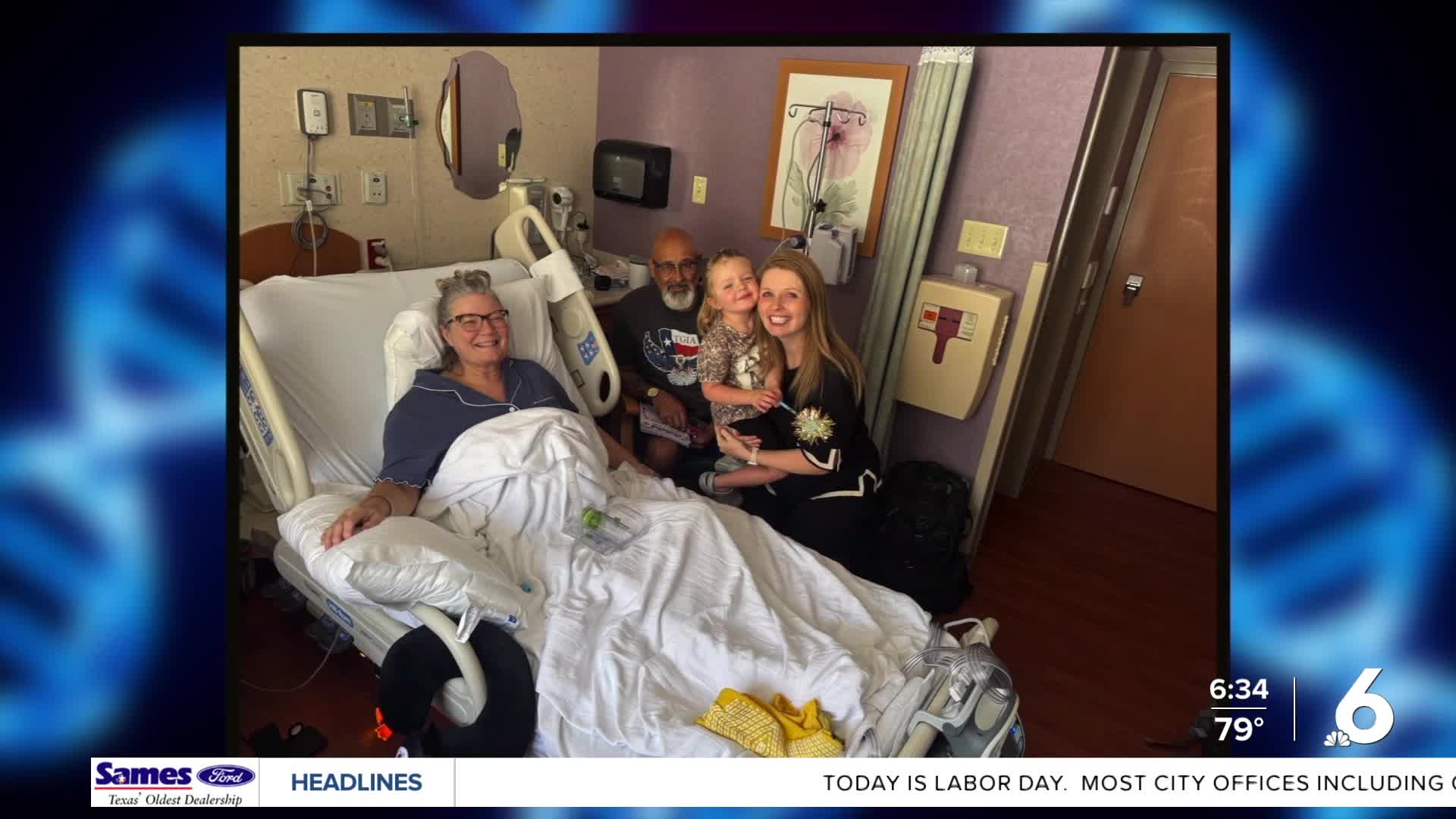CORPUS CHRIST, Texas — Tonja Sanchez felt perfectly healthy when she walked into her routine colonoscopy appointment earlier this summer. She had no pain. No unusual symptoms. But within days, she was facing a stage 3 ovarian cancer diagnosis, one that may have saved her life.
“If not for that colonoscopy, I would have never known.” said Sanchez.
Ovarian cancer was once called a “silent killer” for a reason, it often presents with vague or no symptoms, and by the time it’s discovered, it can be dangerously advanced. Now, medical experts are urging women to speak up, get informed, and advocate for themselves.
A Hidden Threat
September is Ovarian Cancer Awareness Month. KRIS 6 News spoke with Dr. Abigail Weisenburger, a women’s health doctor with Amistad Health in Corpus Christi, for more information on the disease. She said ovarian cancer is both aggressive and elusive.
“The issue is that this cancer is aggressive when it’s found because symptoms are very non-specific,” she explained. “We don’t have any good screening tests for ovarian cancer. There’s no yearly Pap smear like we do with cervical cancer, no regular mammogram like for breast cancer. So most of the time, when we find ovarian cancer, it’s at an advanced stage.”
While it’s more rare than breast or colon cancer, ovarian cancer remains one of the most deadly cancers among women, in large part because it is so difficult to detect early.
“If you have a personal or family history of ovarian or other female cancers, you might have a genetic predisposition,” Weisenburger said. “Those patients need to talk with their doctor.”
She also noted that women who are done having children should consider discussing the option of removing their fallopian tubes, a procedure that may reduce ovarian cancer risk.
Click here to learn more about reducing your risk for ovarian cancer.
A Life-Altering Summer
Sanchez’s diagnosis was unexpected. She had been diligent about her preventive care, annual checkups, regular blood work, and colonoscopies. A delay in insurance caused her to push back a scheduled colonoscopy for nearly a year.
“When I finally went in, the doctor noticed something near my appendix and sent me for a CT scan,” she recalled. “My appendix was fine. But they found a tumor.”
Within a week, she was undergoing further tests, and not long after, she had major surgery in San Antonio to remove the cancer. Doctors were able to extract the tumor, but microscopic cancer cells remained. She is currently undergoing chemotherapy, followed by maintenance treatments that could last up to a year.
She’s facing it all with faith, strength, and an outpouring of family and community support.
“We’re still new at our church, Oso Creek, but people there have done so much, meal trains, prayers, support teams,” said Sanchez. “God’s hand has been in every moment of this.”
A Mission to Raise Awareness
Sanchez isn’t just fighting for her life. She’s speaking out for others, especially women who may be unaware of their risk or who feel unsure about asking their doctor the right questions.
“This cancer can be treated, but too many women don’t make it because they didn’t know,” she said. “We need awareness. We need to talk about it.”
Her own family history now looks different. Her great-grandmother, grandmother, and aunt all battled female cancers. Her aunt, who was also diagnosed with ovarian cancer, passed away from complications after chemotherapy, just last December. Sanchez has two daughters, and she says they will make sure their health providers are aware of their family history and risks.
“Women need to advocate for themselves,” she said. “They need to ask questions, request certain tests, and tell their doctors about any family history.”
She emphasizes the importance of keeping up with annual checkups, not just gynecological exams, but colonoscopies and other preventive screenings.
“Who would’ve thought that it would be a colonoscopy that revealed this cancer for me?” she said. “Preventive care can save your life.”
Staying Strong, Staying Hopeful
Despite the challenges ahead, Sanchez remains optimistic. Her first round of chemotherapy left her tired and dehydrated, but with the support of her family, friends, and medical team, she’s determined to keep fighting.
“I feel good today. I feel like myself,” she said. “I know not every day will feel like this, but I’m counting my blessings, every single one.”
And she’s not alone. From the staff at her local gynecologist’s office to the nurses administering her chemo, Sanchez said she’s been met with compassion and urgency. Her employer, at a local misled school has also rallied around her.
“My principal is a cancer survivor. She gets it,” she said. “Everyone’s been so supportive.”
A Final Message
If there’s one message Sanchez wants other women to hear, it’s this: early detection matters.
“Be open with your doctor. Go to your yearly appointments, even if they’re not fun,” she said with a laugh. “They’re not supposed to be fun. They’re supposed to save your life.”





